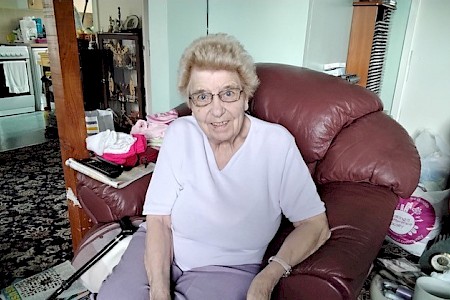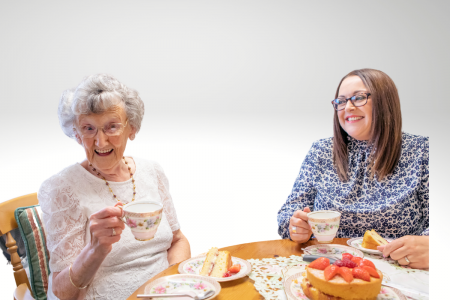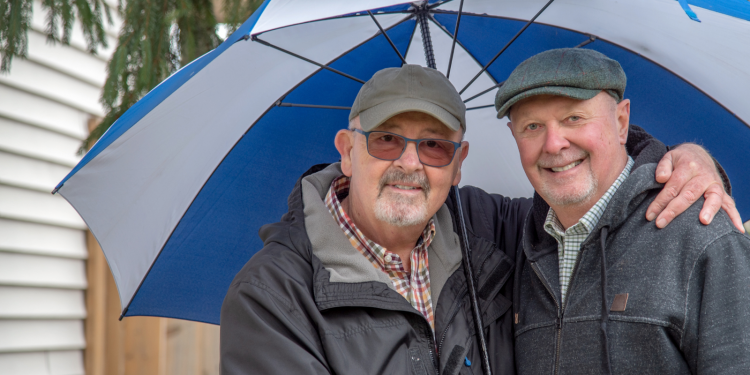In July we launched an exploratory research project to hear about the types of social activity groups and services LGBT+ people aged 70+ would like to take part in. We know from existing research that LGBT+ people are at an increased risk of social isolation and loneliness as they age, but forming social networks, often through LGBT+ specific groups and services, can vastly cushion people from this1. Whilst much of the existing research focuses on those aged 50 plus, there is very little research to understand the specific views and experiences of those aged 70+. To fill this gap in knowledge we sought the views of those aged 70+, through an online survey and a series of interviews. We extend our thanks to all those who have taken part so far.
Early indications have shown that there is a real desire and need for groups and services that build social connections and help to alleviate feelings of loneliness and social isolation for people within the older LGBT+ community.
Many of those taking part in the research reported often feeling lonely and despite a desire to access social groups or services, have not gone on to join them. Of those who wanted to, many couldn’t join because of illness or disability, highlighting the need to provide fully accessible groups and services.
Of those who did take part in social groups and services over the past three years, the largest motivation for joining was a desire to make friends; but knowing someone who already attended or used the service was also a very important factor in whether they joined up.
Many expressed that they didn’t feel a part of their community and a fear of being open about their gender identity or sexual orientation with others. Many of those surveyed avoid being open about their sexual orientation for fear of a negative reaction from others and of those who identify as a different gender to the one assigned at birth; all so far have said they avoid expressing their gender identity for fear of a negative reaction from others.
“This coming out process goes on all the time, every time you meet people… it becomes quite tiring. Often, we tend not to bring it up or offer it as something that is important in day-to-day life, although it is.”
The research shows a clear desire for more groups and services specifically for the LGBT+ community, with the majority of those involved agreeing that this was important or very important to them. Many have already accessed LGBT+ services within the past three years and our interviewees discussed some of the advantages of joining an LGBT+ group.
“Sometimes people need to be with people with whom they don’t have to explain. That's the thing, I don’t have to tell anyone about my history: some people there know exactly what I’ve been through. If you aren’t in that sort of group of people, you tend not to bring up things that are going to make people ask you all sorts of questions.”
Our survey and interviews are still open, so if you are aged 70 or older, identify as LGBT+ and wish to take part in this important piece of research, please do one (or both) of the following:
We want to hear from people with a wide range of experiences and needs. You don’t need to have experience of loneliness or social isolation to take part.
We usually work with people over 75, but we want to hear from anyone aged 70 or over. That will help us understand the needs and wants of people who are approaching 75, as well as those already aged 75 or older.
By taking part, you will help us understand the needs of older LGBT+ people and help us create tailored new services that support our mission to help end social isolation and loneliness in older people.
Inequalities in older LGBT people’s health and care needs in the United Kingdom: a systematic scoping review Dylan Kneale1* , Josie Henley2, James Thomas1 and Robert French 2019
-
View
More news

Age is no barrier to friendship
Call companions Pat and Catherine prove age is no barrier to friendship and having a good laugh together to lift their spirits. They were matched together at the start of the year and speak to each other every week.
By Re-engage

The tea parties became a lifeline for Kathleen
Karen and Kathleen are members of the West Lothian tea party group. They first met when Karen started driving Kathleen to and from the monthly tea parties. Today, Karen sees Kathleen as family.
By Re-engage

